#present moment
Photo
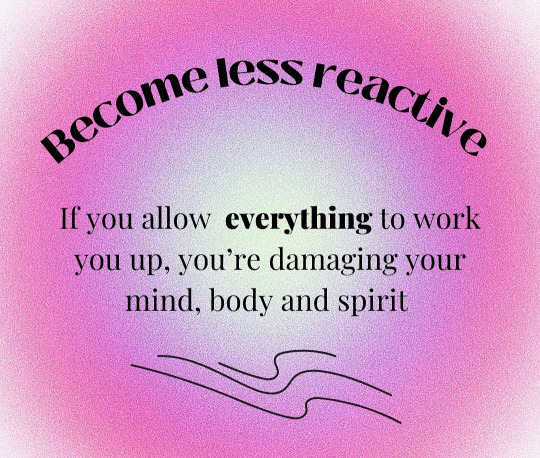
#toxic people#people pleaser#healing#mental health#self improvement#present moment#mental strength#self reflection#self help#Help#therapy#self importance#be yourself#new beginnings#be your own person#be your best self#be your best you#self love#life#life lessons#mental growth#mental support#manifestation#manifesting#inspiring#inspirational quotes
8K notes
·
View notes
Text
“Life is like music for its own sake. We are living in an eternal now, and when we listen to music we are not listening to the past, we are not listening to the future, we are listening to an expanded present.”
— Alan Watts
55 notes
·
View notes
Text
One day when you're older, you will be able to feel proud that you made it through so many times even when you felt lost and out of options. Don't give up just yet. You cannot change the past, but you can accept and handle the present in a way that you can build yourself a happy future. There are good things waiting for you, good people too. Don't miss out on a good future because you are too attached to the past and too anxious over the present. Just because it has been hard, it doesn't mean it will be this hard forever.
#self-acceptance#self-worth#on the future#about the future#living in the present#present moment#positivity#healing#recovery#reminder#reassurance#original writing
1K notes
·
View notes
Text

#figure it out#trauma#unresolved trauma#present moment#be present#quotes#words#life lessons#wisdom#inspirational words#growth#healing#Kathy Overman
243 notes
·
View notes
Text
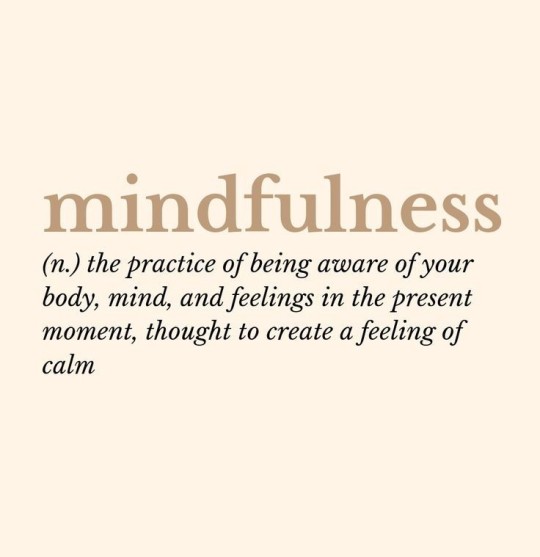
#mindfulness#mindful#self awareness#awareness#peaceful mind#calm mind#mind#body#be present#present moment#grounded#grounding#spirituality#spiritualjourney#the universe#spiritual#manifestation#witchblr#witch community#positive mindset#healthy mind#meditate#meditation#meditating#self healing#healing#positive thoughts#positive thinking#quotes#spiritual quotes
55 notes
·
View notes
Text
Life is ups and downs. Today will never be like yesterday nor will the tomorrow be like today so live the moments in hands . If something is making you stressed , face it . If something is making you happy , enjoy it . No matter however it is ..live it , that's the most important thing.
#quotes#inspiration#motivation#self improvement#self help#self worth#self healing#self love#self care#love yourself#live well#live life#today#present moment#words#life quotes#advice#that girl#life advice#life quotations
56 notes
·
View notes
Text
“True happiness is to enjoy the present, without anxious dependence upon the future, not to amuse ourselves with either hopes or fears but to rest satisfied with what we have, which is sufficient, for he that is so wants nothing. The greatest blessings of mankind are within us and within our reach. A wise man is content with his lot, whatever it may be, without wishing for what he has not.”
—Seneca
#satisfaction#seneca#spirituality#expand your consciousness#stoic quotes#stoicmindset#stoicphilosophy#stoicism#mind stuff#present moment#daily stoic#stoic philosophy#perceptions#perception#change your perspective#positive thinking#perspective#philosophy#philosophical#self awareness#self actualization#self care#self help#self improvement#self healing#self acceptation#conscious awareness#spiritual awareness#awareness#live in the now
60 notes
·
View notes
Text
As the first rays of dawn break through the darkness, let us embrace this moment as a profound rebirth of our awareness. The past, with all its trials and tribulations, lies behind us, a distant memory. With renewed vigor, let's sprint forward, eager and determined, toward the radiant possibilities that await us in the present. Each step we take in this new beginning is a testament to our resilience, a testament to our unyielding spirit, and a testament to our unwavering belief in the power of now.
//Monday 11th September//
.
61 notes
·
View notes
Note
So I’ve been following COP28 over the past two weeks and today I was also reading about the upcoming Star Wars novel The Living Force and together they had me wondering how does Buddhism balance it’s philosophy of focusing on the present without falling into the kind of short-term thinking that’s played a not insignificant role in problems like climate change and mass environmental destruction. Because while I certainly understand not obsessing over the future, it also seems incredibly reckless and irresponsible to completely ignore it.
And how does Buddhism balance focusing on present when things like trauma and injustices can and do echo down generations. Given you’ve talked about preserving no longer acceptable content in a previous ask about Death of/to the Author I’m guessing that when Buddhism does talks about letting go of the past that doesn’t mean forgetting it, but I would be interested to hear what the Buddhist take on specific things like reparations given a climate damage fund for countries less equipped to fight climate change was a major sticking point for COP27.
Well, these are complex issues!
There is a kind of focus on the present moment that is "live for the moment," meaning, you concentrate on the present with little or no concern for the future. This is to live your life in a way that takes only the right now into account, and focuses entirely on making yourself feel good right now. Obviously, this leads to serious problems both on the individual and on the global level of life. Climate change and mass environmental destruction is the best example of this. Now, I assume that popular culture tries to legitimize this kind of focus on the right now by - among other things - pointing at the Buddhist focus on the present moment. However, it's very important to see that the Buddhist practice of being fully alive and being fully present in the present moment is profoundly different from being concerned only about and losing ourselves in what's happening right now.
The Buddha said: “Don't get caught in the past, because the past is gone. Don't get upset about the future, because the future is not yet here. There is only one moment for you to be alive, and that is the present moment." This means that life is only available for us in the present moment. Life is happening in the present moment and only in the present moment. It's not happening in the past, because the past is no longer reality, it not happening in the future, because it's not yet reality. Life and reality is only in the here and now. So, the basic Buddhist practice is to bring ourselves fully into the here and now, to fully engage with, to fully be present in the present moment. Like Yoda said, it's important to have our minds where we are, what we are doing. The mind shall be where the body is, not elsewhere.
Essentially, this is mindfulness of the present moment. Mindfulness, as we discussed before, is not to immerse yourself into momentary experiences, nor it's meditation - it's to maintain a flow of voluntarily awareness or attention, holding, bearing something in mind, without distraction, without forgetfulness. So, when you bring yourself into the here and now, you know what is going on in the present moment. Rather than blocking out past and future, you get back in touch with life as it's happening, you rejoin its flow. By being truly present in the moment, you, to use a crude example, realize that you are sitting in the driver's seat, and you see the traffic around yourself. You can see where you came from and where you are heading, what directions you can take and what directions you can no longer take, you can have a clear picture of whether or not you're able to drive as fast as you go right now, whether you should slow down. By being in the here and now, you are able to choose where you want to go. So, the Buddhist focus on the "present moment" is actually focus on life, a full awareness of what you are doing. It doesn't allow for one to fall into short-term thinking, it reveals, very, very clearly, the far-reaching consequences of what we are doing. Nor does it allow for dismissing other's pain, especially when it comes to the pain of the Earth, because if the Earth is dying, we are dying. In the present moment, interconnectedness reveals itself to you, but only in the present moment. Effort can only be made in the present.
In the present moment, you can see reality as it is: you can see that everything is interconnected. By being fully present, fully alive in the moment, things as simple as drinking a mug of coffee can bring forth insight that leads to a more compassionate and more wise life. If you look deeply, with mindfulness into your mug of coffee, you see the coffee beans in there. You see all the minerals, all the water, all the soil, all the sunlight that nourished it. You see all the people who tended it so it can grow, all the people who harvested it, roasted it, packed it, brought it to you so you can drink it. In that mug, you can see all their lives. You can see the Earth rotating, bringing forth the days and nights and the seasons ripening the coffee beans. You can see the water the Earth gave you so you can make your coffee. You see all the economical, political and ideological processes governing coffee production, and you see how we treat those people you see how we treat the Earth. And you see how what you do in the present will affect the future. This is not mystical, it's not even particularly religious, it's simply being truly and deeply in the present moment.
It should be clear, therefore, that being fully present and fully alive in the here and now is not the refusal of considering the consequences of your present behaviors, thoughts, feelings, nor it is the refusal of the acknowledgment of where they're coming from. Buddhism tells us that in the here and now, with mindfulness, we can clearly see if we're hurting, if we have wounds, like traumas, and by being fully alive in the present moment, we can meet them with compassion and courage. If you are present in the here and now, if you are truly there, you can see if there is a splinter in your finger (or a spear in your heart) and you can see how to remove it and how to heal. Thus, being mindful is also called "loving attention" or "loving awareness." You need to sit with, to be with your trauma and you need to do it with tenderness and courage, because that's how you will heal. We must learn all of the ways in which we have stored our traumatic experiences. We need to find the corners that our trauma has been living in. But that, too, can only happen in the flow of life. One bank is the past, and the other bank is the future. You have to swim in the river, because that's the space in which you can find healing. Letting go means, you are no longer clinging onto the pain, nor you are holding on to the false hope that you can somehow resist to past pains. You must let it go, so it can flow as it must. You must accept it, attend to it. Whether it's trauma or injustice, personal or global.
The Buddhist take on specific issues, like reparations given a climate damage fund for countries less equipped to fight climate change, is informed by these principles. My opinion is that it's a good start, but it's kind of like poisoning the river, then keep poisoning the river, but paying for the damage done to those who rely on the water of the river. People still need to stop poisoning the water.
31 notes
·
View notes
Text

Infinite peace is infinitely within the present 🕊
#inner peace#inner wisdom#inner journey#inner thoughts#present moment#mindfulquotes#healthy mind#mindfulthinking#mindfulmeditation#heart expansion#personal expansion#spiritual expansion#spiritual growth#spiritual life#spiritual journey#spiritualawareness#spiritual development
209 notes
·
View notes
Photo
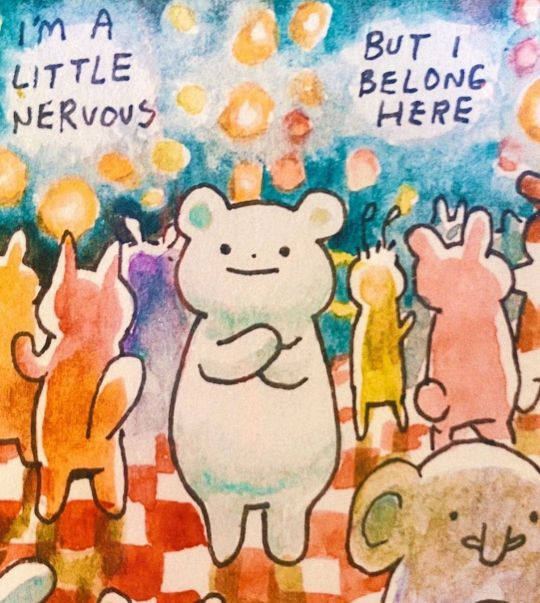
#belonging#well-being#being yourself#being present#present moment#living in the present#living for myself#living unapologetically#living well#new living#love#loving life#love yourself#reminder#positivity#positive thoughts#therapy#inspiration#inspirational quotes
3K notes
·
View notes
Text
“Life is like music for its own sake. We are living in an eternal now, and when we listen to music we are not listening to the past, we are not listening to the future, we are listening to an expanded present.”
— Alan Watts
102 notes
·
View notes
Text

Ana Luna
#present moment#there is no later#quotes#healing#moon#energy#trust#mystical#mysterious#portals#dreamy#dreams#beautiful#beauty#escape#pretty#art#dark art#spiritual#spirits#being present#in the moment#dark#skeletons#red#orange#fine art#artists#balance#light and dark
51 notes
·
View notes
Text
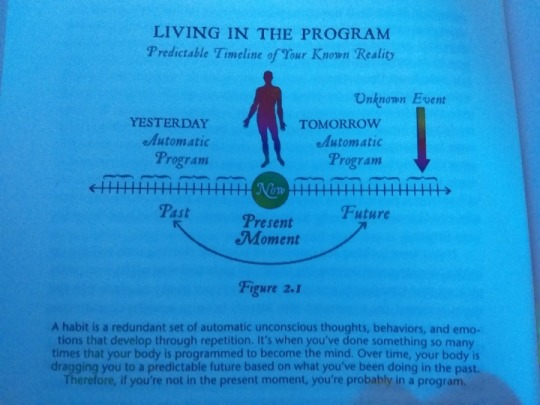
Break the program
The unknown is where miracles happen. Lets stop living in the known -past/predictable future, and start living in the unknown -the present moment.
#dr joe dispenza#supernatural#habits#present moment#mindfulness#mind body soul#books and reading#spiritualhealing#science#mysticism
82 notes
·
View notes
Text
Nothing should be named lest by doing so we change it. Let it exist, this bank, this beauty, and I, for one instant, steeped in pleasure. The sun is hot. I see the river. I see trees speckled and burnt in the autumn sunlight.
Virginia Woolf, The Waves
#virginia woolf#the waves#english literature#quote#literature#lit#prose#fiction#mindfulness#presence#present moment#labeling#naming#autumn#fall#acceptance
25 notes
·
View notes
Text
Breathing in, my breath grows deep - breathing out, my breath goes slow
"Explore the profound mindfulness practice of 'Breathing in, my breath grows deep; breathing out, my breath goes slow.' Inspired by Thich Nhat Hanh's teachings, this simple yet transformative exercise unites body and mind, cultivates calm, and deepens our understanding of life's impermanence and interconnectedness. A gateway to the richness of the present moment is but a breath away."
The mindfulness exercise, “Breathing in, my breath grows deep; breathing out, my breath goes slow,” is a simple yet profound practice inspired by the teachings of Zen master Thich Nhat Hanh and the Plum Village tradition. It taps into the natural rhythm of our bodies and minds, serving as a gateway to deeper understanding and presence.
As you breathe in, you consciously invite your breath to…
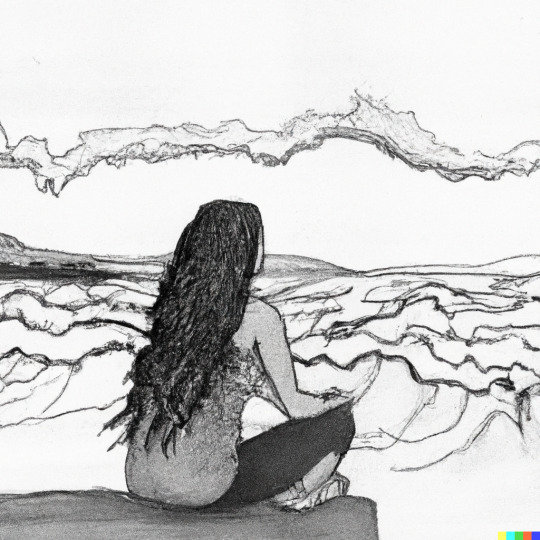
View On WordPress
#Conscious Breathing#Guided Meditation#Impermanence#Interconnectedness#Meditation#Mental Health#Mindful Breathing#Mindfulness#Plum Village#Present Moment#Stress Reduction#Thich Nhat Hanh#Wellness#Zen Buddhism
47 notes
·
View notes